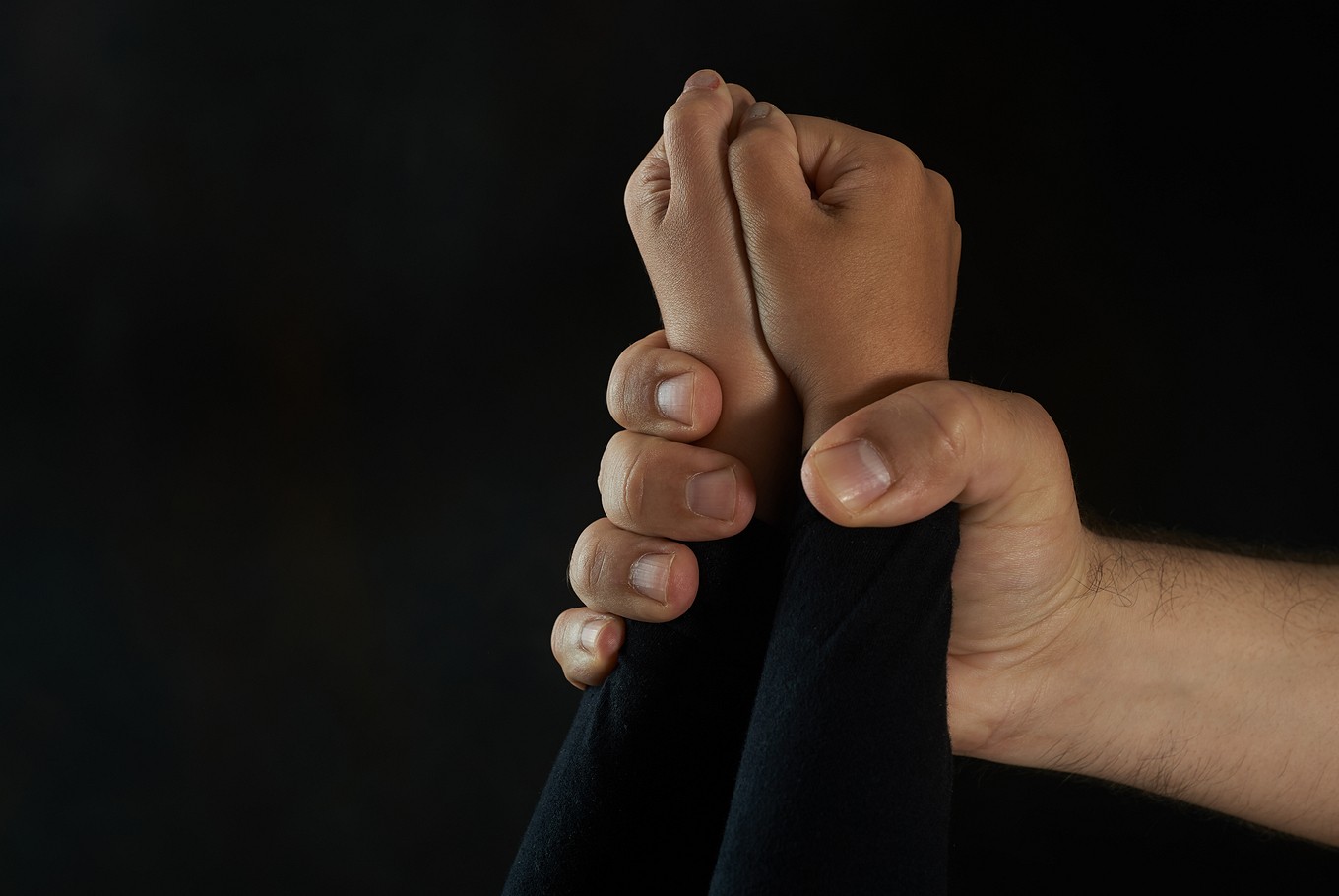Popular Reads
Top Results
Can't find what you're looking for?
View all search resultsPopular Reads
Top Results
Can't find what you're looking for?
View all search resultsStop justifying violence toward children
Judging by the mistakes made by myself and my friends back when we were still young, children are either noisy in class, don’t finish their homework, cheat on exams, play pranks on friends, or have untidy hair and clothing.Do children deserve violent punishment for mistakes such as these? Are there no forms of non-violent punishment that are more proportionate to their mistakes? Do we really think that teachers have the right to violently punish their students simply because they show a lack of discipline.
Change text size
Gift Premium Articles
to Anyone
S
ince the publication of reports that a teacher who pinched one of her students might be facing three years imprisonment, many opinions have been voiced in social media as well as via radio and television. Most disagree with the imprisonment of the teacher.
I also do not agree that the case should have gone this far. However, I also oppose those who support violence as an appropriate punishment for children, regardless of whether it is practiced by parents or teachers.
Many argue that in the past we were also punished harshly and violently by people in the educational system and we turned out okay. To me, not only is that an oversimplification, it’s also irrelevant.
Let’s say we were not overly harmed by that form of punishment, does that then justify violence as a part of a child’s education? Does it make violence an appropriate way to discipline children?
Before answering such questions, we need to take a look first at the most important stakeholder here: children. What do children think about this? What mistakes at school are they being punished for?
Judging by the mistakes made by myself and my friends back when we were still young, children are either noisy in class, don’t finish their homework, cheat on exams, play pranks on friends, or have untidy hair and clothing.
Do children deserve violent punishment for mistakes such as these? Are there no forms of non-violent punishment that are more proportionate to their mistakes? Do we really think that teachers have the right to violently punish their students simply because they show a lack of discipline.
(Read also: Stop violence against children, says Jokowi)
I believe that teachers have the authority to mete out punishment that is proportionate to their role and a child’s mistakes. For instance, a teacher can tell a student to leave the classroom if the student is pulling a prank on his or her friends in the middle of the class or if the student is so noisy that it disturbs the class. A teacher can give F or 0 grade to students if they cheat on an exam.
In cases where a student continues to behave inappropriately in school, teachers can call students’ parents to inform them about their child’s behavior and discuss options. If the student still does not show a better attitude in school, I believe schools have a number of assertive regulations that can be implemented to prevent students from continuing to make the classroom a place that is not conducive for learning. These solutions do not include violence, though.
People have voiced their criticism by sharing a meme of primary students smoking or quarreling and teachers being unable to punish them because they are afraid of committing human rights violations. I believe that is an oversimplification.
I am not saying that such behavior is not wrong. I am saying that, in such cases, adults must lead by example.
The truth is, we commit hypocrisy while forbidding children to smoke or physically and verbally quarrel. Meanwhile, we are the ones who show them how to smoke and quarrel using swear words. We tell them it is bad and forbid them to do it, but we excuse ourselves when we do the same things.
Now we must try to remember back to when we were children. We thought adults were always right and good role models, hence we imitated their behavior. This imitation process is a logical and natural part of a child’s psychological development. Lest we forget that even children’s ability to speak is developed by imitating adults around them. In light of this, children are not at fault when they smoke and use swear words; rather, adults are.
Try to also remember the first time you lied when you were a child. I’ve asked many people and their answers are either because their parents told them to do, or because the adults around them created an environment in which they were afraid to tell the truth. Again, even children’s lie is the fault of adults.
Of course, I believe that children must not be allowed to smoke because it is unhealthy, but the same also goes for adults. As far as I remember, most of my male teachers in elementary school smoked, even in the school area. I was probably lucky that I couldn’t stand cigarette smoke and therefore I have always disliked smoking and never took up the habit.
(Read also: Will child ID cards really protect children's rights?)
Adults, either teachers or parents, are supposed to avoid any kind of corporal punishment and authoritarian treatment toward children. Much research in the field of psychology and psychiatry has found that such treatment leads to mental health issues later in life and makes children unable to be creative and independently make decisions, exactly as proposed by Baumrind 50 years ago.
I experienced this myself when one of my primary school teachers punished me just because I questioned him. He became annoyed and took it out on me. I was scolded in front of the class, and he hit my leg with a wooden ruler. I believe many other students have also experienced this. Inquisitive children are senselessly punished.
That is why when teachers or parents get angry and punish children, it doesn’t mean their method of punishment is always right. Sometimes, they get angry for reasons unrelated to students, simply because they are having personal problems. I know this because I am now 24 and there are times when I feel easily irritated by other people due to my personal problems or mood swings. Let’s be honest: we have all felt this way at times.
It is utterly irrational to demand children who probably aren’t yet even 10 years old to be wiser and smarter than adults. School teachers are supposed to be the ones who are able to give empathetic, reasonable and resolute explanations to their students. Teachers are supposed to be able to build a connection with the students and make them behave because they understand, not because they are afraid of punishment. Adults are supposed to be the ones who educate children by showing propriety in behavior, not vice versa.
Just because a system or tradition is centuries old doesn’t mean it is right. Just because it has been practiced by many people doesn’t mean it is just. We were colonized for centuries and we all know that imperialism is wrong, just like we know deep down that violence toward children is wrong.
Just because teachers and parents are older than children, does not mean they are always right and better than children. We adults need to learn to admit that we can be wrong and not better than children. We must stop glorifying age as a sign of righteousness.
***
Liswindio Apendicaesar is a blogger at fateisinevitability.blogspot.
---------------
Interested to write for thejakartapost.com? We are looking for information and opinions from experts in a variety of fields or others with appropriate writing skills. The content must be original on the following topics: lifestyle ( beauty, fashion, food ), entertainment, science & technology, health, parenting, social media, travel, and sports. Send your piece to community@jakpost.com.











